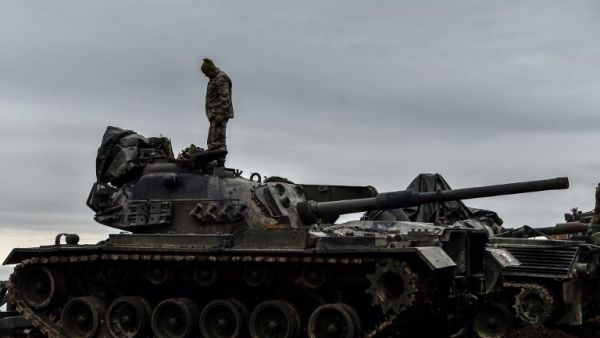The proposal made by Tillerson at a meeting in Paris on Tuesday would to provide a shield to Turkey’s southern border towns against attacks from Syria.
On Wednesday night, two rockets fired by the YPG from the Afrin region hit a mosque and a house in Kilis, killing at least one and injuring 12 people.
Cavusoglu reacted coolly to the offer, saying on Thursday that Washington and Ankara needed to repair broken trust before discussing a security zone.
Experts remain skeptical about the feasibility of a safe zone, which could only take place once the U.S. has broken ties with Syrian Kurdish militia.
Nihat Ali Ozcan, a retired major now serving as a security analyst at the Ankara-based think tank TEPAV, said there is a disagreement between Turkey and the U.S. over threat perception.
“Turkey sees the ongoing challenges in Syria as a survival problem from a strategic perspective, while the U.S. degrade it into a tactical case by offering an option to block the missiles that are fired to Turkey’s border towns from Syrian neighboring lands,” he added.
He said the two had to decide whether a safe zone deal will aim to resettle Syrian refugees, or provide a safe haven for Ankara-backed rebel fighters.
Enes Ayasli, a research assistant at Sakarya University in Turkey, said a safe zone could let the U.S. administration create a “win-win” situation by meeting the needs of both the Turks and the Kurdish groups.
This article has been adapted from its original source.

A Turkish soldier stands on a tank near the Syrian border at Hassa, in Hatay province on January 24, 2018, as part of the operation "Olive Branch", launched a few days ago. The operation aims to oust the People's Protection Units (YPG) militia, which Turkey considers to be a terror group, from its enclave of Afrin.
(OZAN KOSE / AFP)







